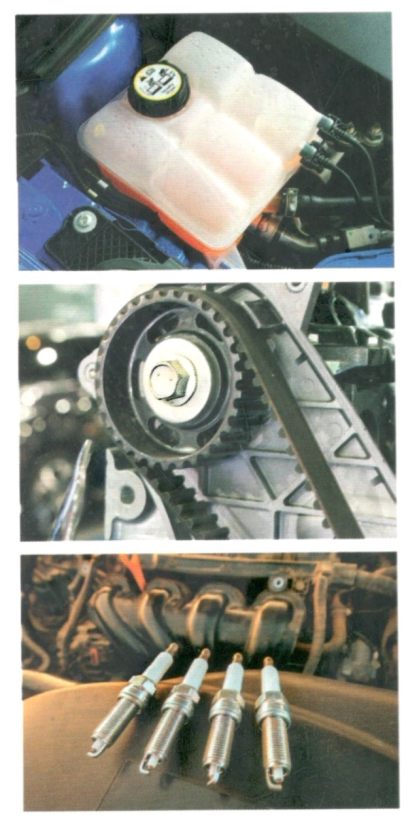
PROTECT YOUR CAR
Change the Oil Regularly – Oil keeps vital engine parts well lubricated so that they won’t overheat. Changing the oil regularly is one of the most important things you can do for your car engine. Your engine can’t function without it and if you go too long between oil changes it can cause permanent damage to the engine over time.
Keep the cooling system working – The easiest way to protect your engine from overheating is by making sure you have the proper amount of coolant (radiator fluid) circulating throughout your engine. The cooling system includes the radiator, thermostat, water pump and coolant.
Keep the Engine Breathing – Cars need a constant flow of air. Aside from fuel, air is the next essential ingredient in keeping your engine running. The air needs to be coming into the engine continually, without restriction and without debris. Replace the air filter if necessary to keep that engine running smoothly and protect it against all those bugs and other road debris that ends up on your front bumper.
Check for Leaks – Occasionally check under the car to see if anything is leaking onto the pavement below. Sometimes you don’t need to spot a leak; more often than not you can just smell it. Oil and antifreeze are the two main fluids you want to make sure aren’t leaking out of your engine.
Fill Up Your Gas Tank Before It Gets Too Low – If you consistently run your car all the way down to empty, you are pulling from the bottom-of-the-barrel and all the extra junk that’s accumulated there. After years of driving around and many fill-ups, there may actually be a fair amount of junk at the bottom of your fuel tank. Your fuel filter will catch a lot of this sediment and keep it out of your car’s fuel lines and your engine. Alternatively, based on personal preference one could fill your gas tank with Shell V-Power that targets dirt deposits – a key enemy of engine performance and efficiency. Shell V-Power helps to clean them away as you drive. It is formulated with a friction reducing ingredient, designed to help key engine components to turn more freely; helping to reduce wasted energy.
Check your belts – Turn them over slightly to see if they have any visible cracks in them. A squealing or spinning belt may also indicate that it needs to be adjusted or replaced.
Replace Fuel Filter – The fuel filter protects your engine from harmful sediment and particles in the gas. The fuel filter catches any particles or debris that would be harmful to the engine and keeps it trapped in a canister, much like your oil filter does. Signs of a Clogged Fuel Filter
- Trouble Starting the Engine. The most common sign of a clogged fuel filter is trouble starting the car, since it depletes the oil supply going to the engine.
- Issues in Accelerating. If you step on the gas to accelerate the speed doesn’t change.
- Frequent Idling and Sputtering. Very often the engine will start normally but will shut down when you try to stop.
- Strong Odors. If your vehicle’s exhaust emits strong fumes, it could be a sign of a dirty fuel filter. It could mean other damaging issues as well. Whatever the case, foul odors mean you should have a professional take a look at your car as soon as possible.
Change the Spark Plugs and Wires – The wires running from your distributor send an electrical current to the spark plugs which then generate a spark to ignite the fuel and air mixture in your cylinders. They get a lot of use and they can cause your engine to run really rough if they get too old or worn out. Some common signs that you need new spark plugs are an illuminated check engine light, engine misfires or more vibration than usual and poor fuel economy. The engine is the most expensive and complex part of your car. These checks should keep your engine healthy and save you a lot of money in major repairs and replacements.
